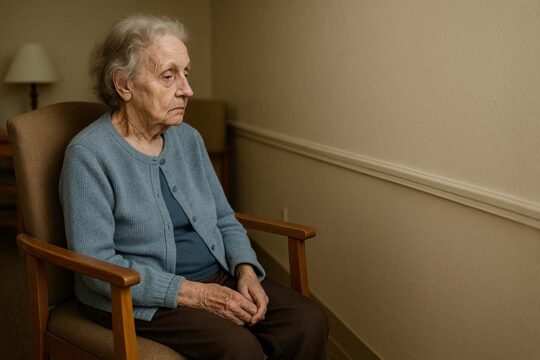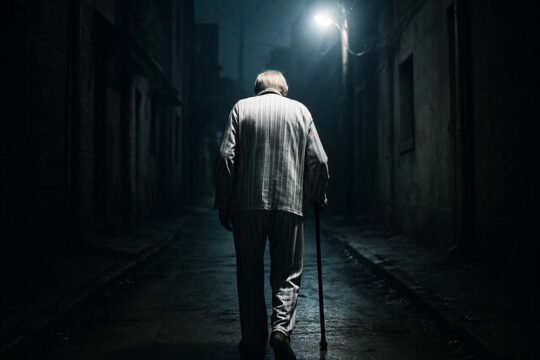
Traumatic Brain Injuries and Dementia: What You Should Know
Traumatic Brain Injury and Dementia Risks
A traumatic brain injury (TBI) is a type of injury that occurs when an external force or trauma causes damage to the brain. TBIs can vary in severity and have a range of effects on a person’s physical, cognitive, emotional, and behavioral functioning. TBIs are a significant public health concern. Early diagnosis and appropriate care are essential for minimizing their long-term impact on people who experience them. TBIs are often classified into three categories based on their severity:
- Mild TBI (Concussion): Typically involves temporary cognitive and physical symptoms. Loss of consciousness, if it occurs, is brief.
- Moderate TBI: Involves more significant cognitive and physical impairments, with a longer recovery period.
- Severe TBI: May lead to profound cognitive, physical, and emotional deficits and may result in long-term or permanent disability.
Common causes of traumatic brain injuries
Common causes of TBIs include falls, car accidents, sports injuries, workplace accidents, and assaults. When the head experiences a sudden and forceful impact or is subjected to rapid acceleration and deceleration, the brain can be jolted within the skull, leading to injury.
Risk factors associated with TBIs
Some risk factors, like age and gender, are not modifiable, while others, like wearing protective gear and following safety guidelines, can be addressed to reduce the risk of TBIs. Taking precautions and practicing safety measures are key steps in preventing these injuries.
- 1. Age: Certain age groups are more susceptible to TBIs. Older adults and young children have a higher risk due to falls.
- 2. Gender: Men are more likely than women to experience TBIs, due to a higher involvement in activities with a higher risk of injury, like sports and certain professions.
- 3. Occupation: People working in occupations like construction, mining, and military service, may face an elevated risk of TBIs due to their work.
- 4. Recreational Activities: Participating in sports and recreational activities, particularly contact sports like football or combat sports, increases the risk of TBIs.
- 5. Alcohol and Substance Use: Alcohol and drug use, especially when leading to impaired judgment or coordination, can increase the risk of accidents and injuries that result in TBIs.
- 6. Motor Vehicle Accidents: Car crashes and motorcycle accidents are a leading cause of TBIs, especially if seat belts or helmets are not used.
- 7. Falls: Falls are a significant cause of TBIs.
- 8. Assault: Violent acts, including physical assaults and gunshot wounds, can result in TBIs.
- 9. Military Service: Military personnel may be exposed to blast-related TBIs due to explosions and combat.
- 10. Prior TBIs: A previous TBI increases the risk of subsequent TBIs and may lead to more severe outcomes.
- 11. Medical Conditions: Medical conditions, like epilepsy or bleeding disorders, can increase the risk of experiencing a TBI.
- 12. Lack of Safety Measures: Not wearing seatbelts while driving, failing to use helmets during activities like biking or skiing, and neglecting safety precautions increase the risk of TBIs.
Is Traumatic Brain Injury (TBI) a risk factor for late-life dementia?
TBIs are considered a risk factor for late-life dementia. Studies and research have suggested a link between a history of TBI and an increased risk of developing dementia, including Alzheimer’s disease and Chronic Traumatic Encephalopathy (CTE). Here are some key points regarding this:
Increased Risk: An increase in traumatic brain injury and dementia risk is higher for later-life dementia when someone has experienced a moderate to severe TBI, compared to people who have not had a TBI.
Alzheimer’s Disease: TBI, especially when accompanied by loss of consciousness or post-traumatic amnesia, has been associated with an increased risk of Alzheimer’s disease. The risk is highest for those with severe TBI.
Chronic Traumatic Encephalopathy (CTE): CTE is a neurodegenerative condition associated with repetitive head trauma, often seen in athletes and people who’ve had multiple TBIs. It can lead to dementia-like symptoms, including memory problems, mood changes, and cognitive impairment.
Age of Onset: Those who have had TBI may develop dementia symptoms younger than those without a history of TBI.
Other Factors: The risk of dementia following a TBI may be influenced by other factors, like the severity and number of TBIs, genetic predisposition, and brain health.
Ongoing research is aimed at better understanding TBI and dementia, including the underlying mechanisms and potential interventions to reduce the risk.
What evidence is there linking head injuries to risk of dementia?
The link between head injuries, particularly traumatic brain injuries (TBIs), and the risk of dementia is supported by a substantial body of scientific research. Preventative measures are critical, especially for those with a higher risk, like athletes and military personnel. Not everyone who experiences a head injury will develop dementia. Here is an overview of the evidence:
Population Studies: Some population-based studies have found an association between a history of head injuries, especially moderate to severe TBIs, and an increased risk of developing dementia later in life.
Increased Risk: These studies show that those who’ve had TBIs have a higher risk of dementia compared to those without a history of head injuries.
Severity Matters: The risk of dementia appears to be correlated with the severity of the head injury. Those who have suffered more severe TBIs, often involving loss of consciousness, tend to face a greater risk.
Alzheimer’s Disease: Several studies show the connection between TBIs and an increased risk of Alzheimer’s disease. A history of TBI may accelerate the onset of Alzheimer’s symptoms which is a type of dementia.
Chronic Traumatic Encephalopathy (CTE): CTE is a neurodegenerative condition associated with repetitive head trauma. with dementia-like symptoms and is a form of dementia.
Underlying Mechanisms: Research has explored the biological mechanisms linking head injuries to dementia, which include abnormal proteins like tau and beta-amyloid. Both are hallmark features of Alzheimer’s disease and CTE.
Age of Onset: Some studies suggest those with a history of TBI may develop dementia at a younger age than those without a history.
Symptoms of a Traumatic Brain Injury
Symptoms can vary in severity depending on the extent of the TBI but may include:
- – Headaches
- – Confusion
- – Memory Problems
- – Dizziness
- – Nausea
- – Mood Swings
- – Loss of Consciousness
Symptoms of Dementia in a patient with a Traumatic Brain Injury (TBI)
Symptoms can vary in severity and presentation, and not all those with TBI-related dementia will experience all symptoms. It may depend on the location and extent of the brain injury.
- Memory Loss: Difficulty recalling recent or past events and conversations.
- Cognitive Impairment: Challenges with thinking, problem-solving, and decision-making.
- Confusion: Disorientation and difficulty understanding time and place.
- Communication Problems: Struggles with finding the right words or following conversations.
- Personality Changes: Mood swings, irritability, and altered behavior.
- Impaired Judgment: Difficulty making sound decisions.
- Difficulty with Motor Skills: Problems with coordination and movement.
- Agitation and Aggression: Restlessness and aggressive behavior.
- Wandering: A tendency to roam or wander.
- Hallucinations and Delusions: Seeing or believing things that are not real.
- Disorientation: Becoming easily lost or disoriented even in familiar places.
- Incontinence: Loss of bladder or bowel control.
- Lack of Initiative: Reduced motivation and engagement in activities.
- Dependency: Increasing reliance on others for daily tasks and self-care.
How to receive a diagnosis of TBI and Dementia
Diagnosis requires a clinical evaluation, imaging studies like CT scans or MRIs, and medical history.
Treatment of a Traumatic Brain Injury
- Treatment for TBIs can include rest, medication, physical therapy, cognitive rehabilitation, and counseling.
- The effects of a TBI can be temporary or permanent, and impact a person’s ability to work, daily activities, and relationships. Many TBIs can be prevented through safety measures, like wearing seatbelts, using safe driving habits, using helmets during sports and recreational activities, and ensuring workplace safety.
Related Articles
Types of Dementia and Dementia-Related Diseases
Discover the key differences between retirement homes and assisted living to help you choose the right care for your loved one’s needs.
Learn the risks of leaving a dementia patient alone, legal responsibilities, care strategies, and how to plan for their safety.
Learn why dementia patients wander at night, how to prevent it, and when memory care is the safest option for your loved one in San Diego.
Compare memory care and assisted living, from services and costs to safety and staffing, to find the right senior care in San Diego.



